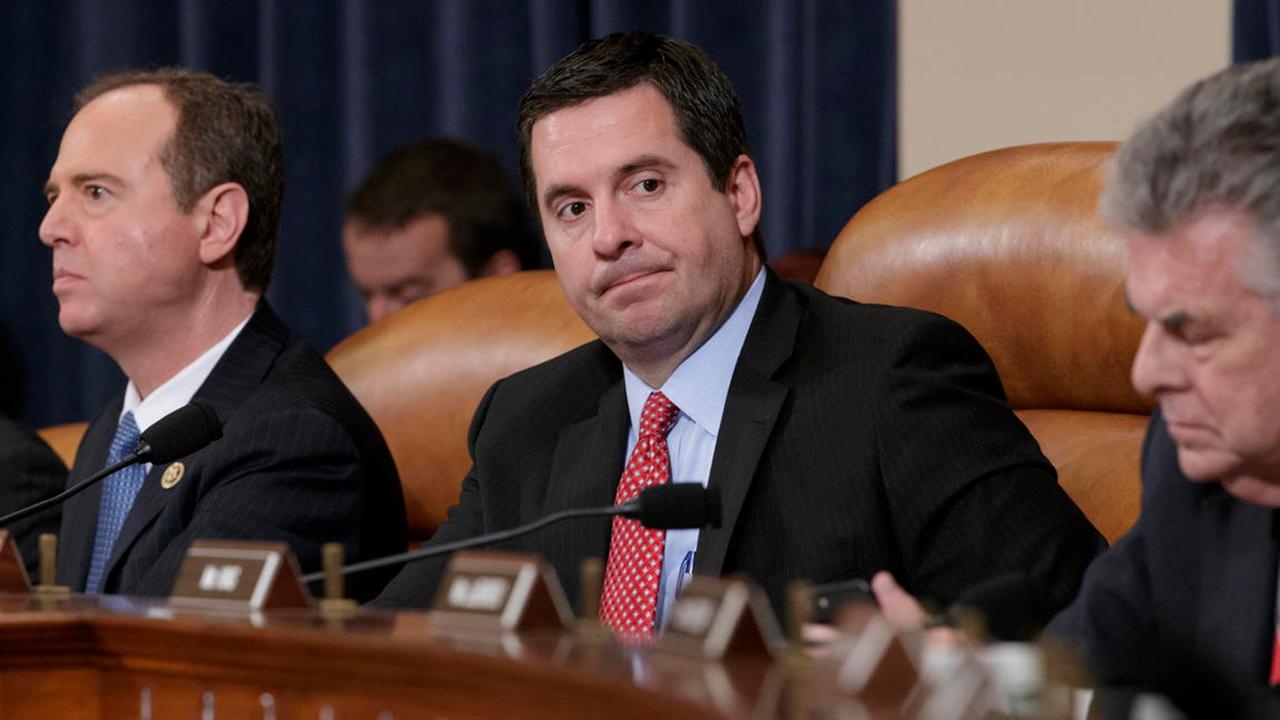House panel’s report looks at ties between Russia, Clinton: Rep. Nunes
Republicans on the House Intelligence Committee found no evidence of collusion between Donald Trump’s 2016 presidential campaign and Russia, but Rep. Devin Nunes warned of concerning links between Hillary Clinton, Russia and Fusion GPS, the commercial research company behind the infamous Trump dossier.
The California Republican, who heads the intelligence committee, pointed to a meeting between Fusion GPS and Natalia Veselnitskaya, the Russian lawyer who met with Trump campaign officials in Trump Tower on the premise of delivering damaging information about Clinton. New reports show Veselnitskaya has ties to the Kremlin.
“You’d have to be a fool to believe that here you have a Russian lawyer paying Fusion GPS that they didn’t talk about the meeting at Trump Tower,” Nunes told FOX Business’ Neil Cavuto during an interview on Saturday.
Fusion GPS denied the accusation, Nunes said, admitting it was unlikely they’d ever be able to prove the connection unless they had access to Veselnitskaya, “which I guess we’ll never be able to do.”
The House panel released its findings -- heavily redacted -- on Friday despite protests from Democrats. According to the report, the committee found “poor judgment and ill-considered actions by the Trump and Clinton campaigns” but stated it “found no evidence that the Trump campaign colluded, coordinated or conspired with the Russian government.”
“The Trump campaign was approached by people or approached by Russia,” Nunes said. “Is it possible the Russians were trying to make connections inside of the Trump campaign? Absolutely. But at least they weren’t paying them like the Democrats and the Clinton campaign were doing.”
The Washington Post reported in October that Marc E. Elias, an attorney representing the Hillary Clinton campaign and the Democratic National Committee, retained Fusion GPS to conduct opposition research -- resulting in the dossier. Prior to that, an unknown Republican client had been funding the research during the GOP primary, according to the Post.




















